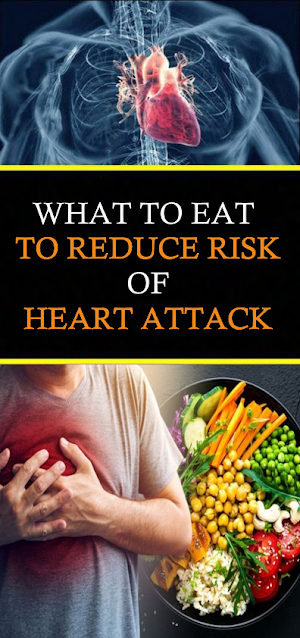Heart attacks are a serious medical emergency that can have life-threatening consequences. According to the American Heart Association, someone in the United States has a heart attack every 40 seconds. While there are several risk factors for heart attacks, such as age, family history, and other medical conditions, making healthy lifestyle choices can significantly reduce your risk.
One of the most important lifestyle choices you can make to reduce your risk of a heart attack is to eat a healthy, balanced diet. The foods you eat can have a significant impact on your heart health, and choosing the right foods can help prevent heart disease and other health complications. In this article, we'll discuss what to eat to reduce the risk of heart attack and promote good heart health.
- Fruits and Vegetables
Fruits and vegetables are a crucial component of a heart-healthy diet. They are rich in antioxidants, fiber, and other nutrients that can reduce inflammation, lower cholesterol levels, and improve blood pressure. Aim to eat a variety of colorful fruits and vegetables every day, such as leafy greens, berries, citrus fruits, tomatoes, and peppers.
- Whole Grains
Whole grains are an excellent source of fiber and other nutrients that can help reduce the risk of heart disease. Choose whole-grain bread, pasta, and cereals instead of refined grains, which have been stripped of their nutritional value. Brown rice, quinoa, and whole-wheat flour are also great choices.
- Fish
Fish is a good source of omega-3 fatty acids, which can help reduce inflammation and lower the risk of heart disease. Fatty fish, such as salmon, mackerel, and sardines, are especially rich in omega-3s. Aim to eat fish at least twice a week.
- Nuts and Seeds
Nuts and seeds are rich in heart-healthy fats, fiber, and other nutrients. They can help reduce inflammation, lower cholesterol levels, and improve blood pressure. Almonds, walnuts, chia seeds, and flaxseeds are excellent choices.
- Lean Proteins
Choosing lean proteins, such as chicken, turkey, and beans, can help reduce the risk of heart disease. Avoid processed meats, such as bacon and sausage, which are high in saturated fats and sodium.
- Low-Fat Dairy
Low-fat dairy products, such as milk, cheese, and yogurt, are an excellent source of calcium and other nutrients that can promote good heart health. Choose low-fat or nonfat options to reduce your intake of saturated fats.
Making healthy food choices is essential to reducing the risk of heart attacks and maintaining good heart health. Eating a diet rich in fruits and vegetables, whole grains, fish, nuts and seeds, lean proteins, and low-fat dairy can provide the nutrients your body needs to stay healthy. In addition to a healthy diet, it's also important to maintain a healthy weight, exercise regularly, and avoid smoking to reduce your risk of heart disease.

